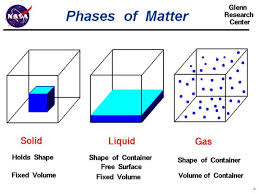matter
英 [ˈmæt.ər]
美 [ˈmæt̬.ɚ]
- n. 物质;原因;事件
- vi. 有关系;要紧
- n. (Matter)人名;(英、法)马特;(西)马特尔
使用频率:

记忆方法
将“matter”与“material”结合记忆,想象“material”(物质)是“matter”(物质)的简写,因此“matter”指任何具体的或抽象的“物质”,这样可以帮助你记住“matter”的含义。
以上内容由AI生成, 仅供参考和借鉴
中文词源
matter 问题,事情,事实
来自拉丁语mater,母亲,词源同mother.引申词义来源,源头,问题的实质,事实,事情等。
英语词源
- matter
-
matter: [14] Matter comes via Anglo-Norman matere from Latin māteria ‘matter’. This was originally applied to the ‘hard inner wood of a tree’, and etymologically denoted the ‘matrix’ or ‘mother’ from which the tree’s new growth came (it was a derivative of Latin māter ‘mother’). The verbal use of matter dates from the late 16th century. Material originated as a derivative of Latin māteria.
=> material, mother - matter (n.)
- c. 1200, materie, "subject of thought, speech, or expression," from Anglo-French matere, Old French matere "subject, theme, topic; substance, content, material; character, education" (12c., Modern French matière), from Latin materia "substance from which something is made," also "hard inner wood of a tree" (source also of Portuguese madeira "wood"), from mater "origin, source, mother" (see mother (n.1)). Or, on another theory, it represents *dmateria, from PIE root *dem-/*dom- (source of Latin domus "house," English timber). With sense development in Latin influenced by Greek hyle, of which it was the equivalent in philosophy.
Meaning "physical substance generally, matter, material" is early 14c.; that of "substance of which some specific object is made or consists of" is attested from late 14c. That of "piece of business, affair, activity, situation, circumstance" is from late 14c. From mid-14c. as "subject of a literary work, content of what is written, main theme." Also in Middle English as "cause, reasons, ground; essential character; field of investigation."
Matter of course "something expected" attested from 1739. For that matter attested from 1670s. What is the matter "what concerns (someone), the cause of the difficulty" is attested from mid-15c. To make no matter "be no difference to" also is mid-15c. - matter (v.)
- "to be of importance or consequence," 1580s, from matter (n.). Related: Mattered; mattering.
权威例句
- 1. No matter where you go in life or how old you get, there's always something new to learn about. After all, life is full of surprises.
- 不管你生活在哪里,你有多少岁,总有新东西要学习,毕竟,生活总是充满惊喜。
- 2. Ever tried. Ever failed. No matter. Try Again. Fail again. Fail better.
- 努力过,失败过,没关系,屡战屡败,屡败屡战,每一次失败都比上一次更好。
- 3. "Steve, what do you want?" — "Coke, Pepsi, it doesn't matter."
- “史蒂夫,你要喝点什么?”——“可口可乐,百事,随便啦。”
- 4. "I know you," he said flatly, matter-of-fact, neutral in tone.
- “我认识你。”他平淡地说道,就事论事,不带任何感情。
- 5. Social progress is normally a matter of struggles and conflicts.
- 社会进步通常是斗争和冲突的结果。
